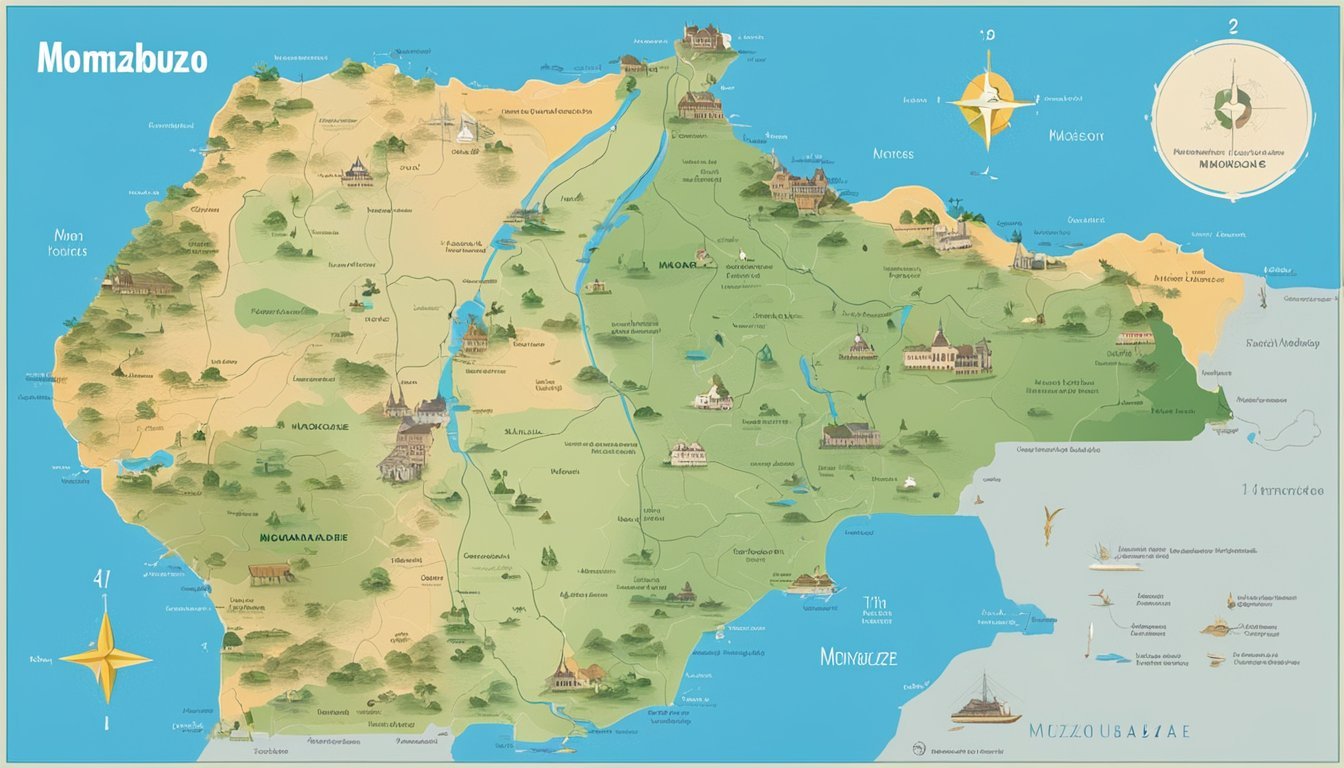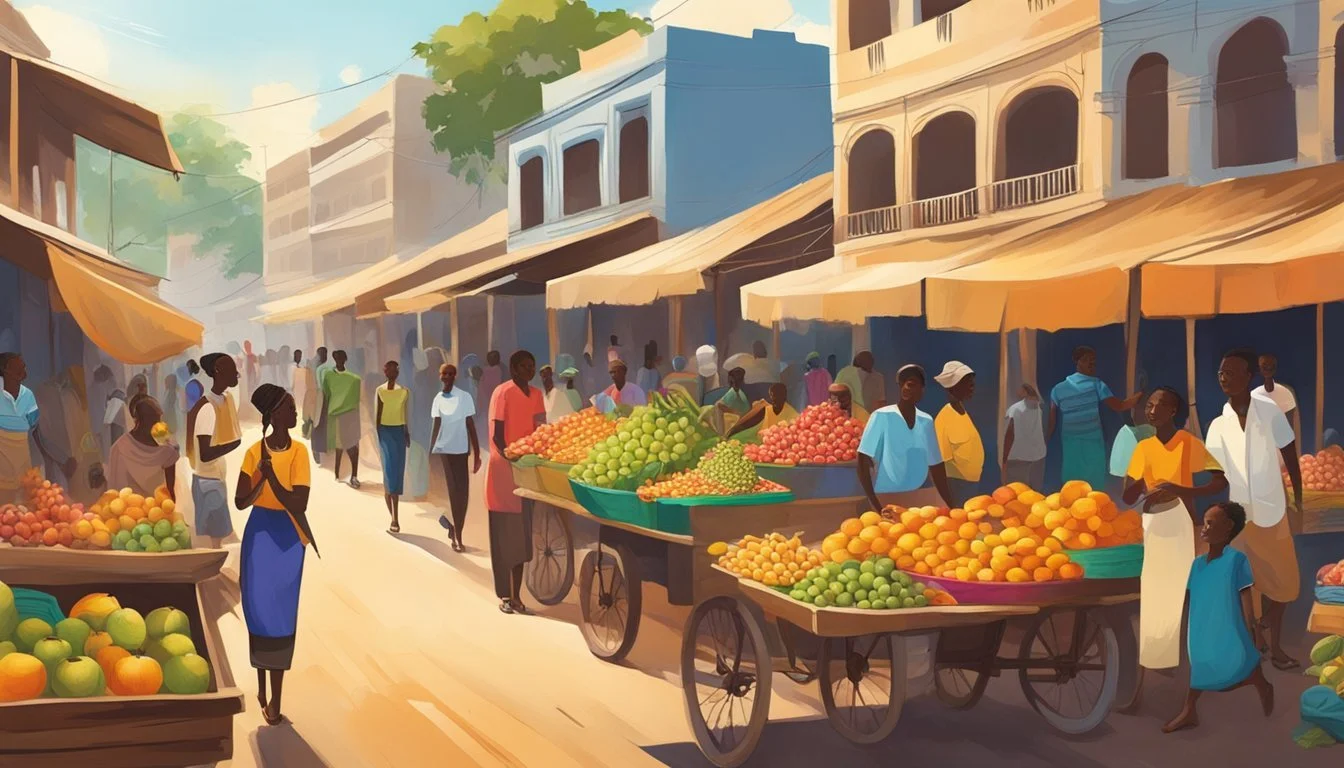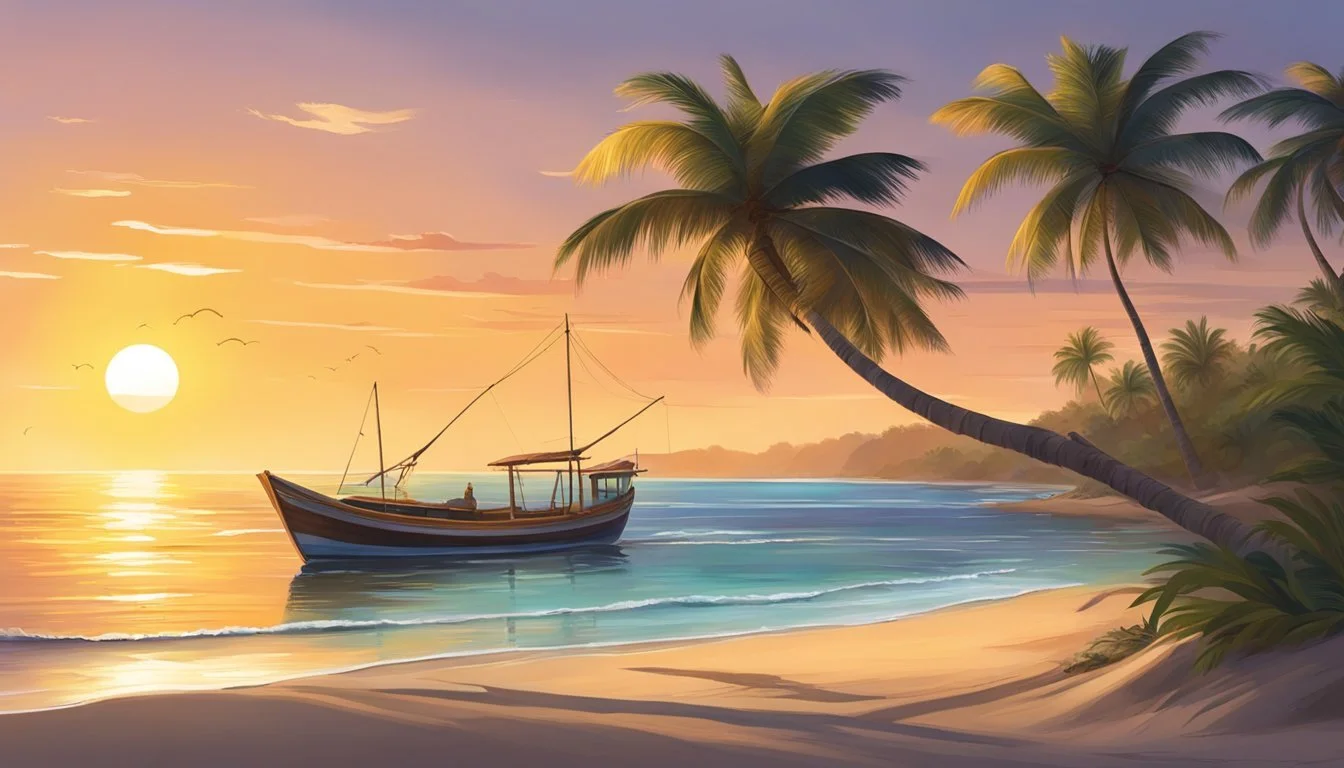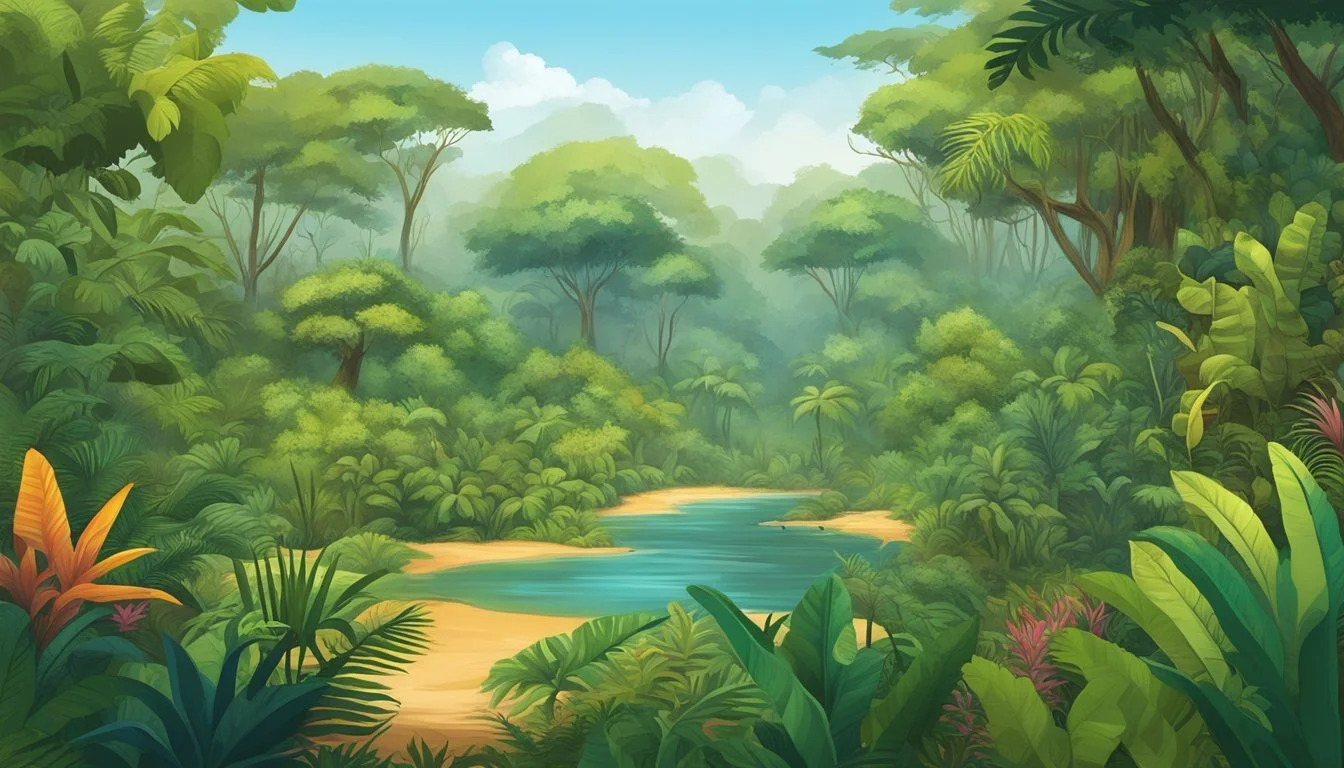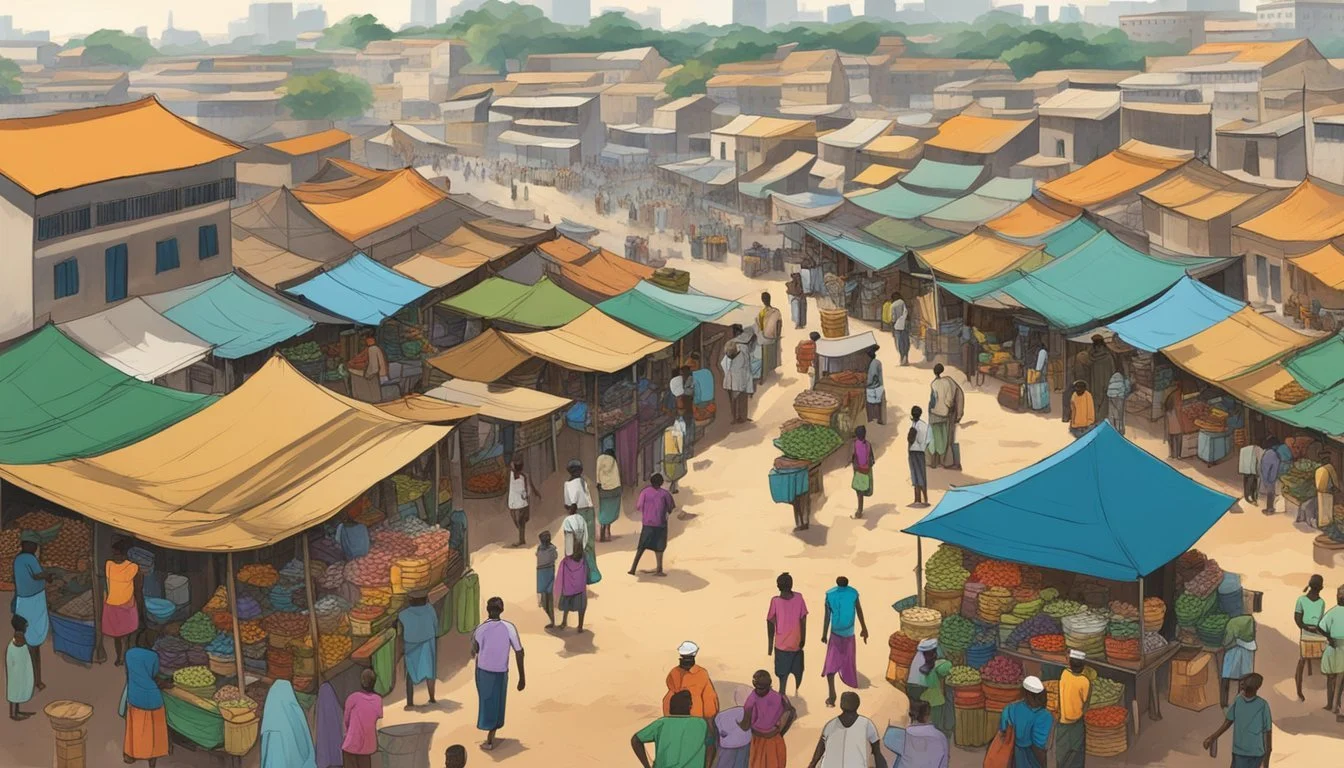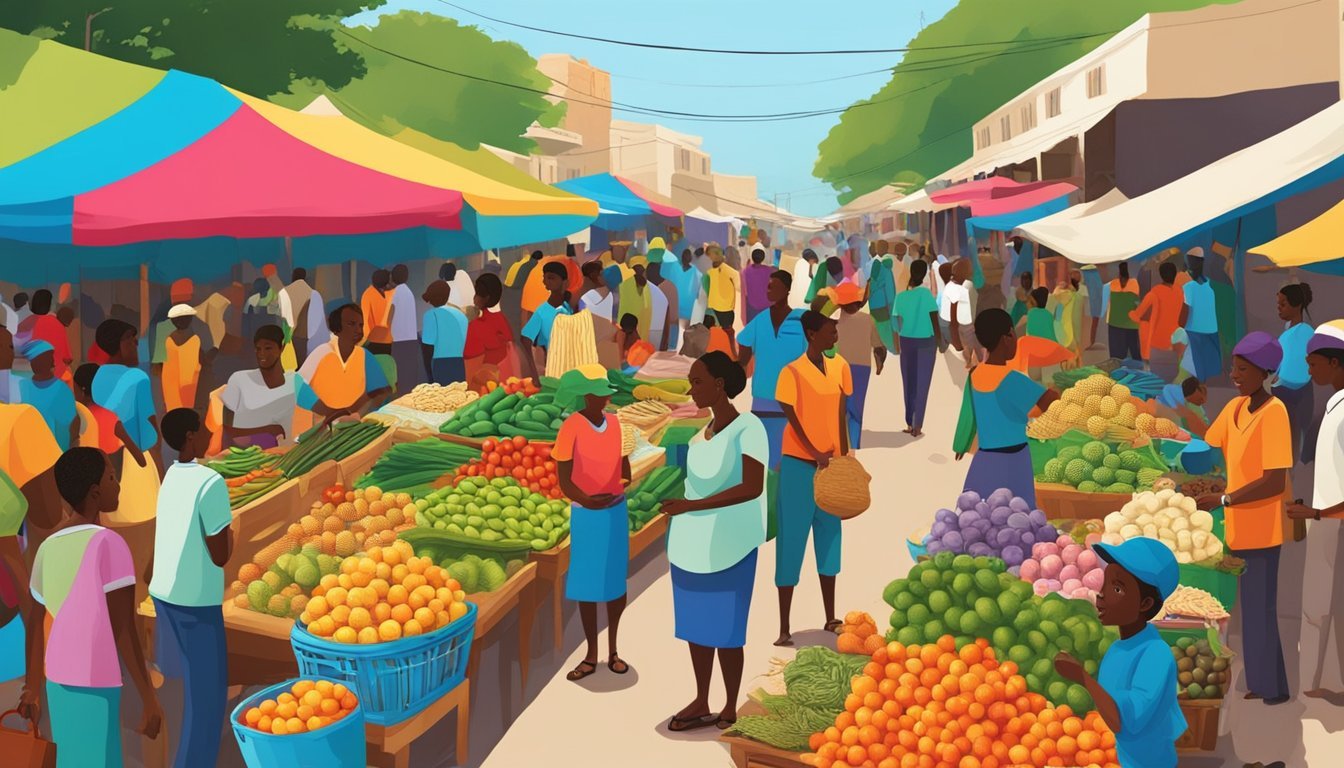6 Insightful Documentaries on Mozambique
Unveiling the Nation's History and Culture
Mozambique, a country of stunning natural beauty and rich cultural heritage, has captivated filmmakers and audiences alike. From its pristine beaches to its lush forests, this East African nation offers a diverse landscape that serves as a backdrop for compelling stories. Documentaries about Mozambique provide viewers with an opportunity to explore the country's complex history, vibrant culture, and ongoing challenges.
These films offer unique insights into Mozambique's past and present, shedding light on its struggles with conflict, economic development, and environmental conservation. By examining the country through the lens of documentary filmmaking, viewers can gain a deeper understanding of Mozambique's place in the world and the issues that shape its future. The six documentaries highlighted in this article showcase different aspects of Mozambican life, from its natural resources to its political landscape.
1) 'The Pearl of Africa: Tales from Mozambique' - Narrated by Idris Elba
'The Pearl of Africa: Tales from Mozambique' offers viewers a captivating journey through the diverse landscapes and rich cultural heritage of Mozambique. Narrated by acclaimed actor Idris Elba, this documentary provides an intimate look at the country's history and modern-day challenges.
The film explores Mozambique's stunning coastline, which stretches over 2,500 kilometers along the Indian Ocean. It showcases the vibrant marine life and pristine beaches that have earned the country its nickname, "The Pearl of Africa."
Elba's smooth narration guides viewers through Mozambique's bustling cities and remote villages. The documentary highlights the nation's unique blend of African, Arab, and Portuguese influences, which are evident in its architecture, cuisine, and traditions.
The film also delves into Mozambique's struggle for independence and its subsequent civil war. It examines how these events have shaped the country's present-day society and economy.
'The Pearl of Africa: Tales from Mozambique' captures the resilience and spirit of the Mozambican people. It features interviews with local artists, entrepreneurs, and community leaders who are working to build a brighter future for their nation.
2) 'Mozambique in Color' - Directed by Sarah Myers
Sarah Myers' documentary 'Mozambique in Color' offers a vibrant exploration of the country's cultural tapestry. Released in 2018, the film showcases Mozambique's diverse landscapes and people through a kaleidoscope of vivid imagery.
Myers spent two years traveling across Mozambique, capturing its bustling cities, serene coastal villages, and lush interior. Her camera lens reveals the nation's rich artistic traditions, from intricate wood carvings to colorful textile designs.
The documentary also delves into Mozambique's complex history, touching on its struggle for independence and subsequent civil war. Myers interviews local artists, musicians, and craftspeople, allowing them to share their stories and perspectives on Mozambican identity.
'Mozambique in Color' received critical acclaim for its stunning cinematography and insightful portrayal of the country's cultural renaissance. The film highlights how art and creativity have played crucial roles in healing and unifying the nation after years of conflict.
Through its focus on color and artistic expression, Myers' documentary presents a nuanced view of contemporary Mozambique. It celebrates the country's resilience and creativity while acknowledging the challenges it continues to face.
3) 'Dancing with the Waves: Mozambique's Coastal Life'
This documentary explores the vibrant coastal communities of Mozambique. It showcases the daily lives of people living along the country's extensive coastline, spanning over 2,500 kilometers.
The film highlights the deep connection between Mozambicans and the ocean. Viewers witness traditional fishing methods passed down through generations, as well as modern sustainable practices being adopted.
Anabela Sumaila, a local beekeeper and mangrove protector, shares her story. Her work on Ilha de Moçambique demonstrates the vital role of mangroves in preserving coastal ecosystems and supporting livelihoods.
The documentary also addresses the challenges faced by these communities. Climate change impacts, including cyclones and changing marine ecosystems, are presented through the eyes of those most affected.
Efforts to conserve marine life and protect coastal habitats are featured. The film showcases initiatives that blend traditional knowledge with scientific approaches to ensure a sustainable future for Mozambique's coastal regions.
Through stunning visuals and personal narratives, 'Dancing with the Waves' paints a vivid picture of life along Mozambique's shores. It captures the resilience and adaptability of coastal communities as they navigate environmental changes and economic pressures.
4) 'Voices of the Past: History of Mozambique'
'Voices of the Past: History of Mozambique' explores the rich and complex history of this southeastern African nation. The documentary presents a chronological narrative, starting from pre-colonial times through the Portuguese colonial era and into independence.
Interviews with historians, elders, and ordinary citizens provide diverse perspectives on key events. The film examines the impact of the colonial period on Mozambican society and culture, including changes in language, religion, and social structures.
The struggle for independence is a central focus, with archival footage and personal accounts bringing the liberation movement to life. The documentary also covers the civil war that followed independence, exploring its causes and consequences.
Contemporary issues are addressed, including economic development challenges and efforts to preserve traditional cultures. The film highlights the resilience of Mozambicans in the face of historical adversity.
By weaving together expert analysis and personal stories, 'Voices of the Past' offers viewers a nuanced understanding of Mozambique's journey through time. It serves as both an educational resource and a tribute to the nation's complex heritage.
5) 'Wild Eden: The Biodiversity of Mozambique'
'Wild Eden: The Biodiversity of Mozambique' showcases the country's rich natural heritage. The documentary explores Mozambique's varied landscapes, from coastal mangroves to inland savannas.
Viewers are introduced to the diverse wildlife inhabiting these ecosystems. The film highlights endangered species like dugongs, which have a small population off the Mozambican coast.
The documentary also examines conservation efforts in the country. It features initiatives like the reforestation programs aimed at restoring Mozambique's depleted forests.
The Bazaruto Archipelago, a national park comprising six islands, receives special attention. The film explores its marine biodiversity and the efforts to protect it.
'Wild Eden' doesn't shy away from addressing challenges. It discusses the loss of over 8 million hectares of forest and its impact on local communities and wildlife.
The documentary also covers the restoration of wildlife in areas affected by civil war. It shows how animals like buffalo, wildebeest, and hippos are being reintroduced to their former habitats.
6) 'Echoes of Resilience: Women of Mozambique'
This documentary sheds light on the strength and determination of Mozambican women. It explores their roles in various spheres of society, from politics to community leadership.
The film highlights the achievement of gender parity in Mozambique's Council of Ministers in 2021. This placed the country among the top three in Africa for women's representation in ministerial positions.
Interviews with influential female leaders showcase their experiences and challenges. The documentary captures their efforts in promoting peace, security, and recovery processes across the nation.
'Echoes of Resilience' also delves into the unique customs of the Makhuwa people in northern Mozambique. Here, women own land and pass it on to female heirs, managing harvests and household finances.
The film portrays how Mozambican women have shown bravery and leadership during difficult times, including the recent pandemic. It illustrates their innovative approaches to finding solutions for community issues.
Through personal stories and cultural insights, 'Echoes of Resilience' paints a vivid picture of women's integral role in shaping Mozambique's present and future.
Historical Context of Mozambique
Mozambique's history is marked by colonial rule, a struggle for independence, and post-independence challenges. These events have shaped the nation's cultural, social, and political landscape.
Colonial History
Portuguese explorers arrived in Mozambique in the late 15th century. By 1505, they established a permanent presence, focusing on trade and resource extraction. The colonial period lasted nearly 500 years, profoundly impacting Mozambican society.
Portugal implemented a system of forced labor and racial segregation. This oppressive regime led to widespread poverty and limited educational opportunities for the indigenous population.
In the 1960s, resistance to colonial rule grew. The Mozambique Liberation Front (FRELIMO) formed in 1962 to fight for independence. The ensuing war lasted over a decade, resulting in thousands of casualties.
Post-Independence Era
Mozambique gained independence in 1975 after the Carnation Revolution in Portugal. FRELIMO, led by Samora Machel, established a socialist government.
The new nation faced significant challenges. A lack of infrastructure and skilled workers hampered development efforts. Political tensions escalated into a civil war between FRELIMO and RENAMO, lasting from 1977 to 1992.
This conflict devastated the country, causing widespread famine and displacement. Over a million people died during this period.
The 1992 Rome General Peace Accords ended the civil war. Mozambique transitioned to a multi-party democracy. Since then, the country has made strides in economic growth and stability, though challenges remain.
Cultural Insights
Mozambique's cultural landscape is a vibrant tapestry woven from diverse ethnic traditions and colonial influences. The nation's artistic expressions reflect its complex history and multicultural society.
Diverse Ethnic Groups
Mozambique is home to over 60 distinct ethnic groups, each with unique customs and languages. The Makua form the largest group, comprising about 47% of the population. They are known for their intricate facial tattoos and initiation rituals.
The Tsonga people, concentrated in the south, practice elaborate coming-of-age ceremonies. The Yao, found in the north, are renowned for their matrilineal social structure and skilled craftsmanship.
Coastal communities like the Swahili blend African and Arab influences in their culture and cuisine. Portuguese colonial legacy is evident in urban areas, shaping architecture, language, and some social customs.
Traditional Music and Dance
Mozambican music and dance are integral to cultural expression and social gatherings. The Timbila, a xylophone-like instrument, is central to the Chopi people's orchestral performances. UNESCO recognizes these as Masterpieces of Oral and Intangible Heritage.
Marrabenta, a popular urban dance music, emerged in the 1950s. It combines traditional rhythms with Portuguese folk influences. The genre often addresses social issues and celebrates Mozambican identity.
Rural communities practice various traditional dances. The Makonde are famous for their masked Mapiko dance, performed during initiation ceremonies. The Nyau dance of central Mozambique features elaborate costumes and acrobatic movements.

